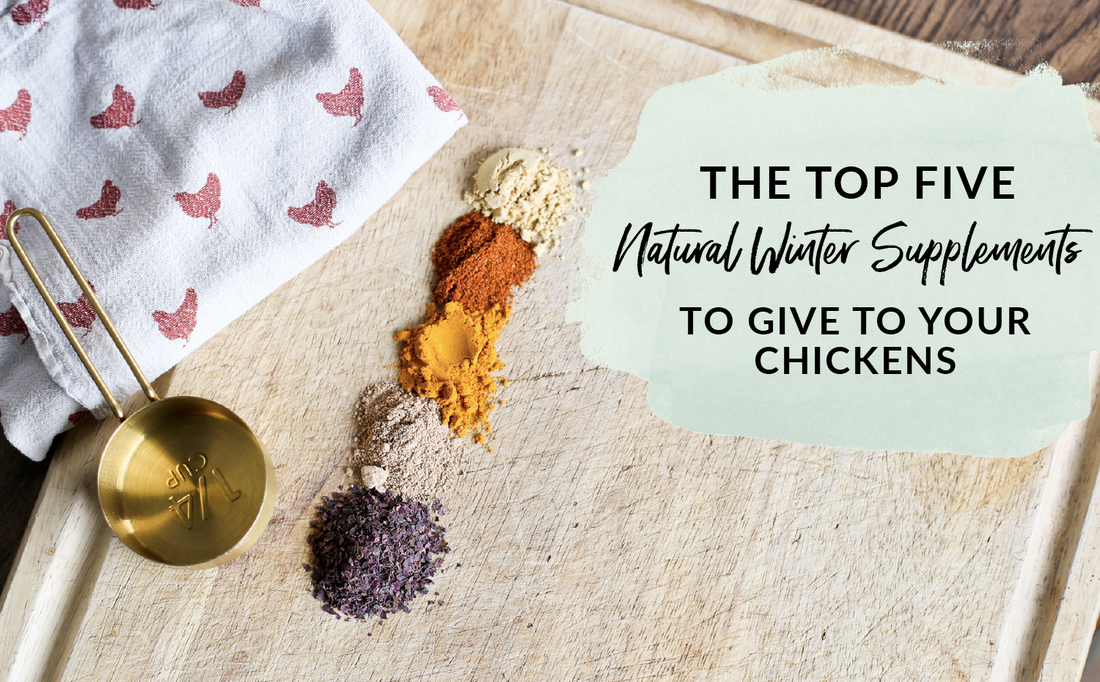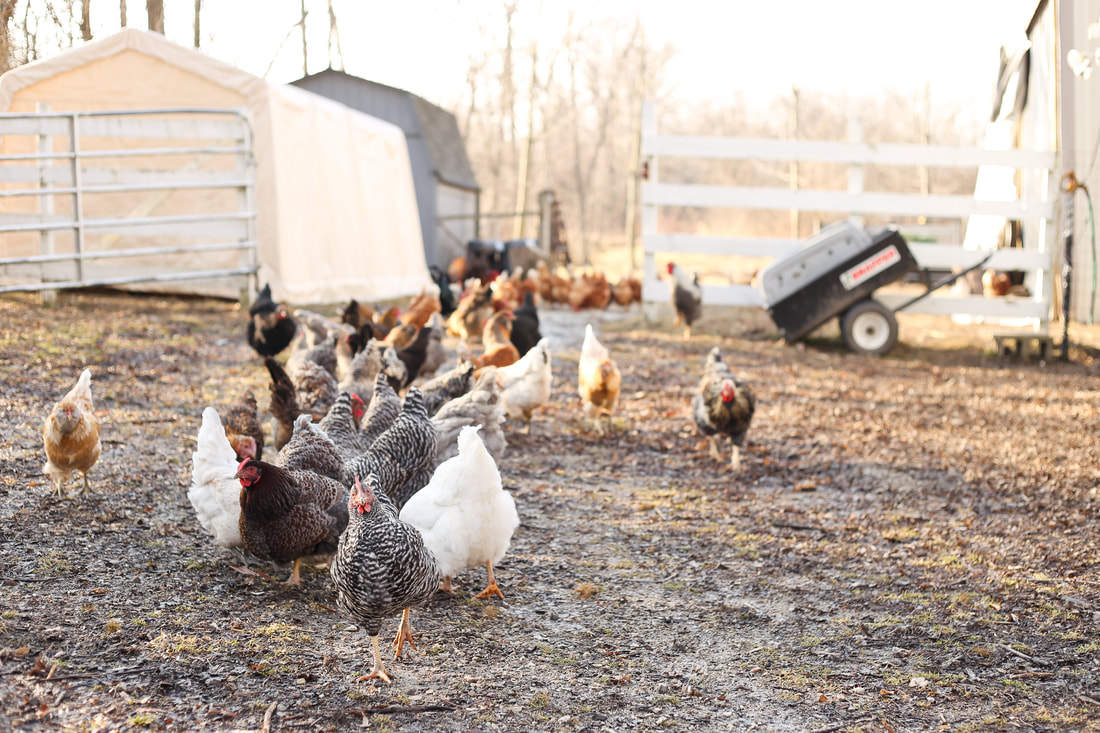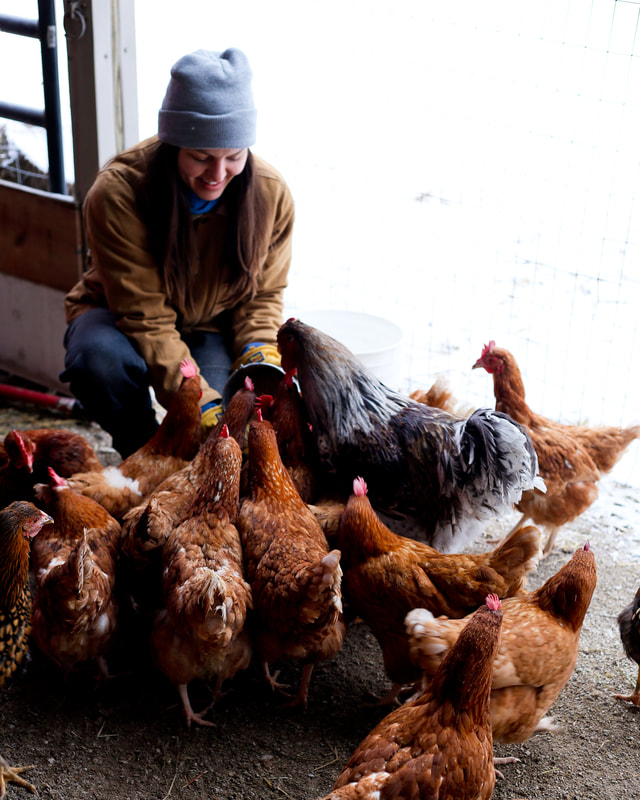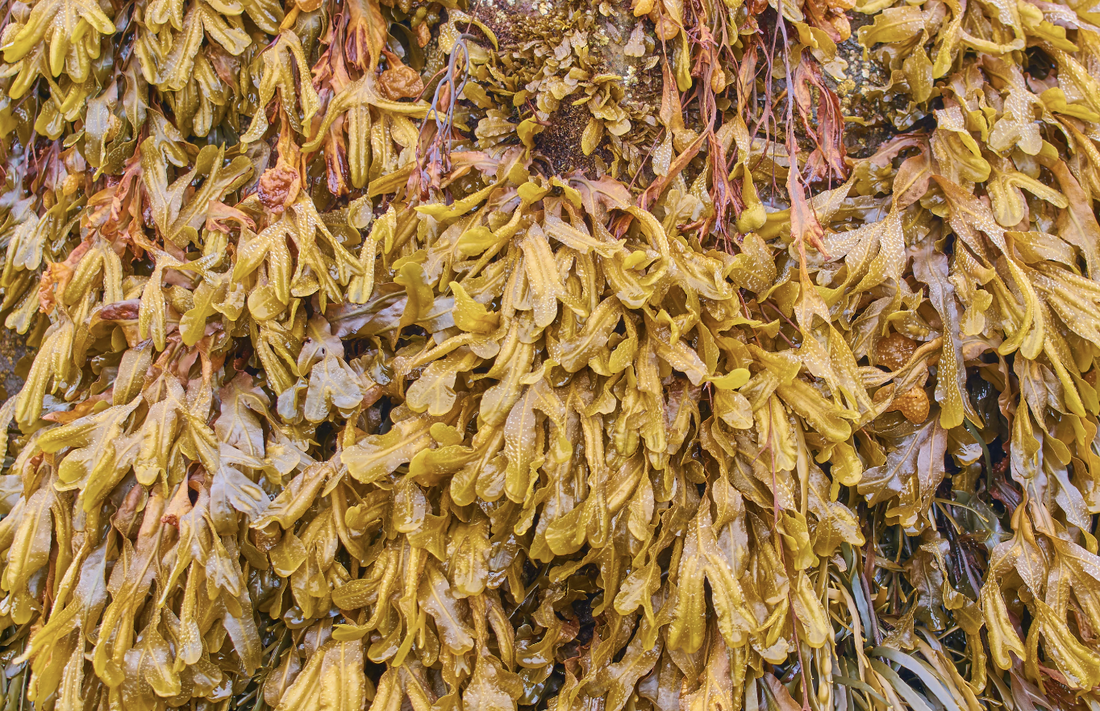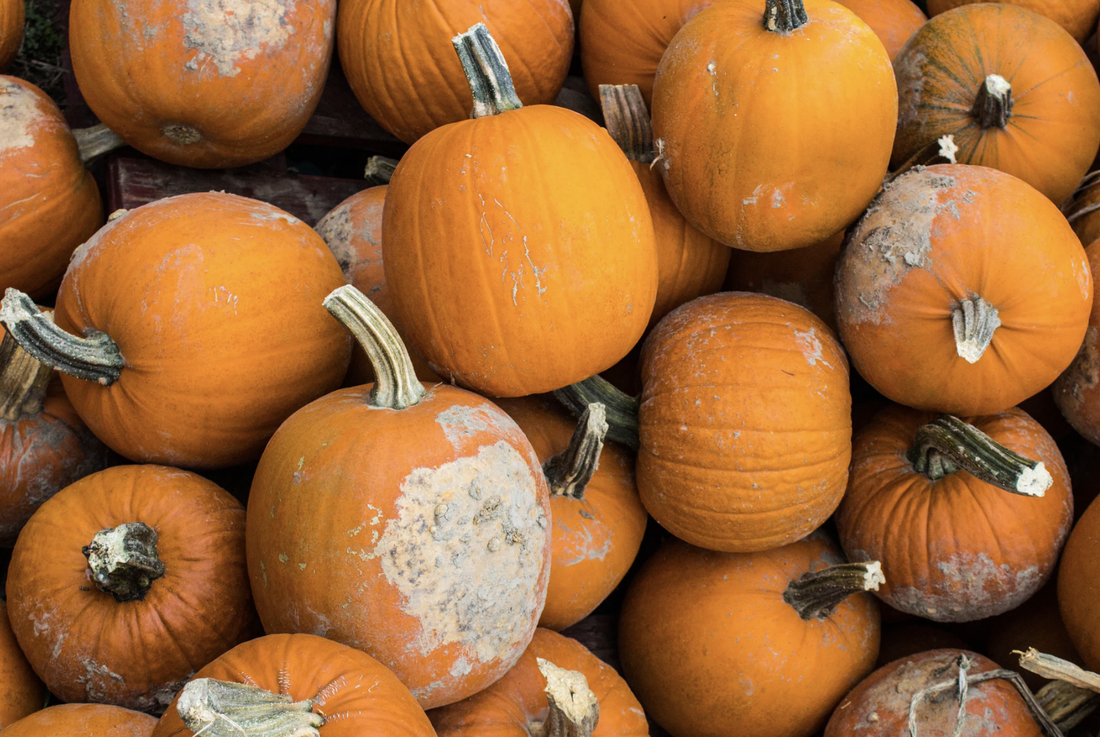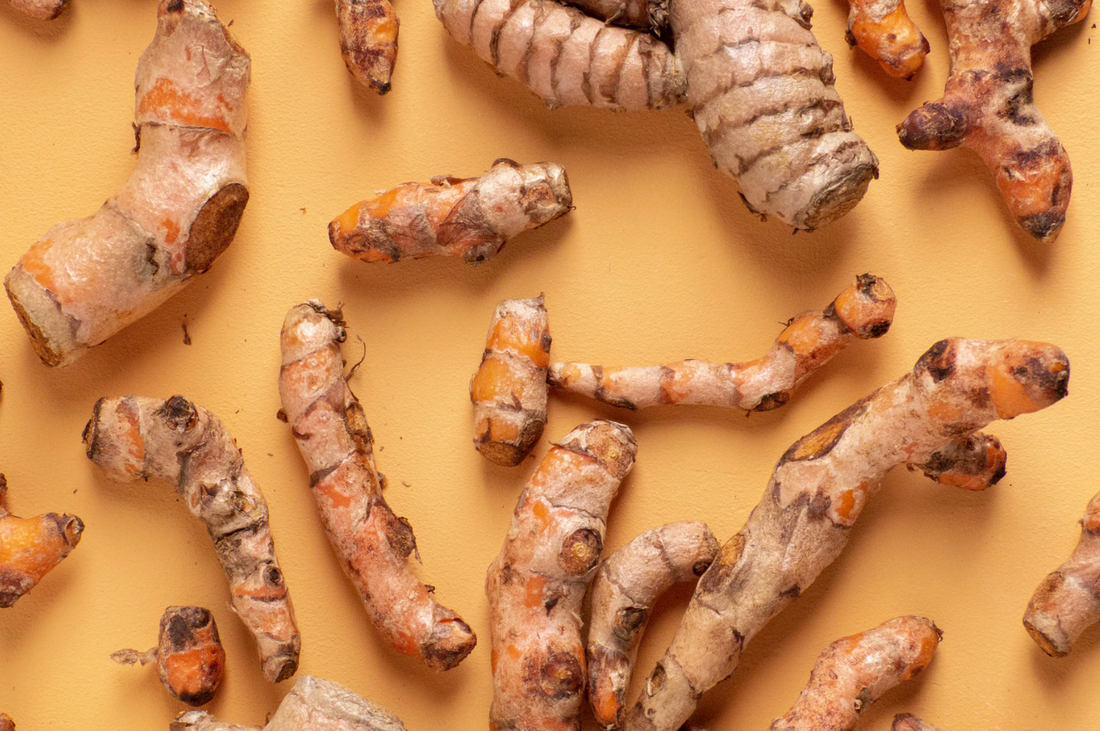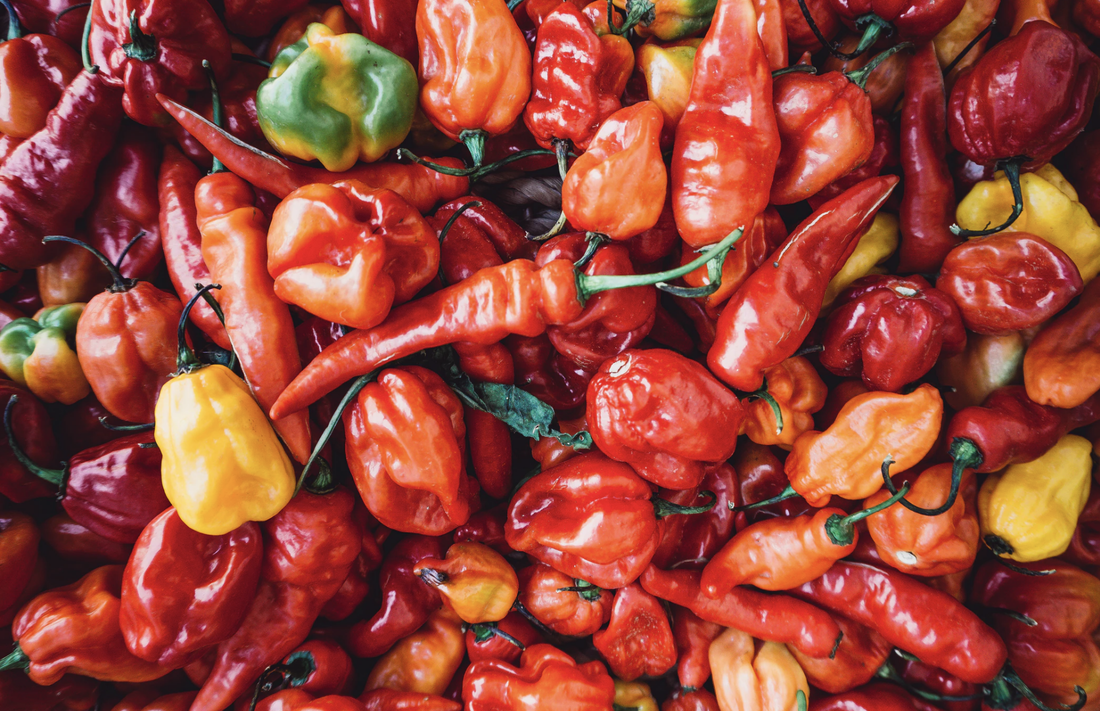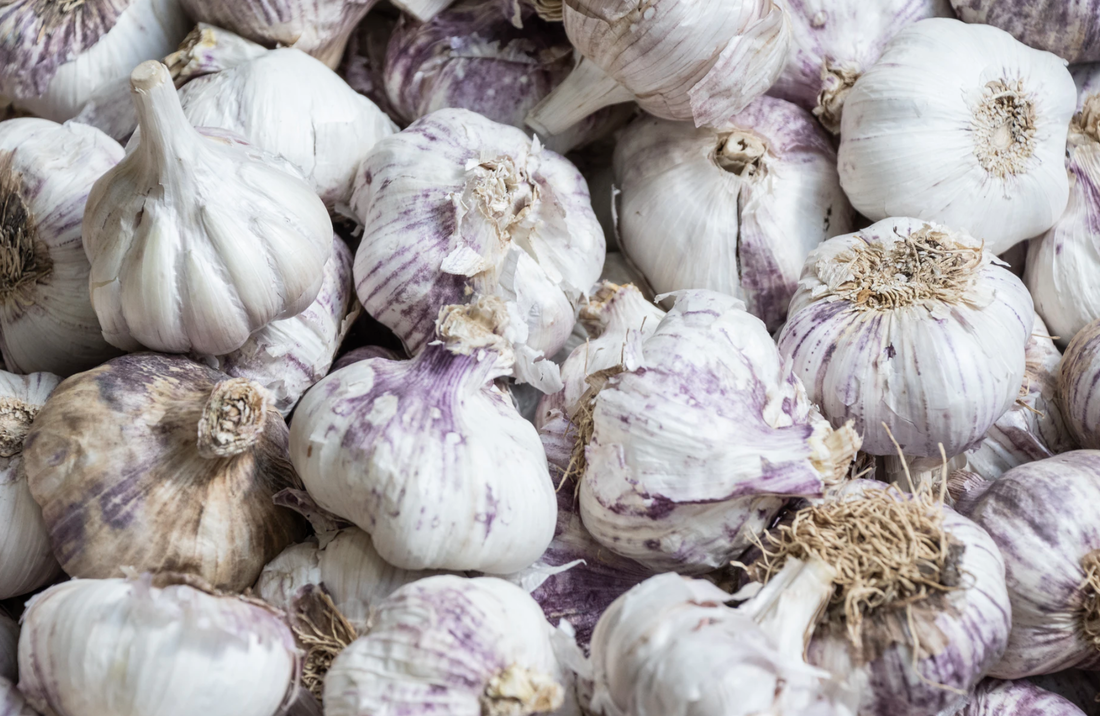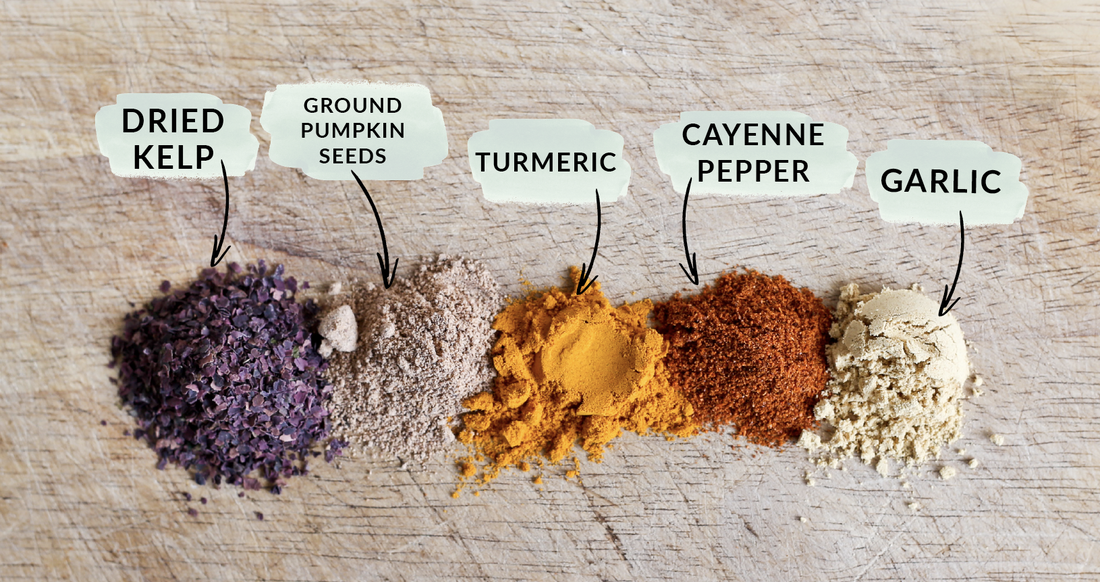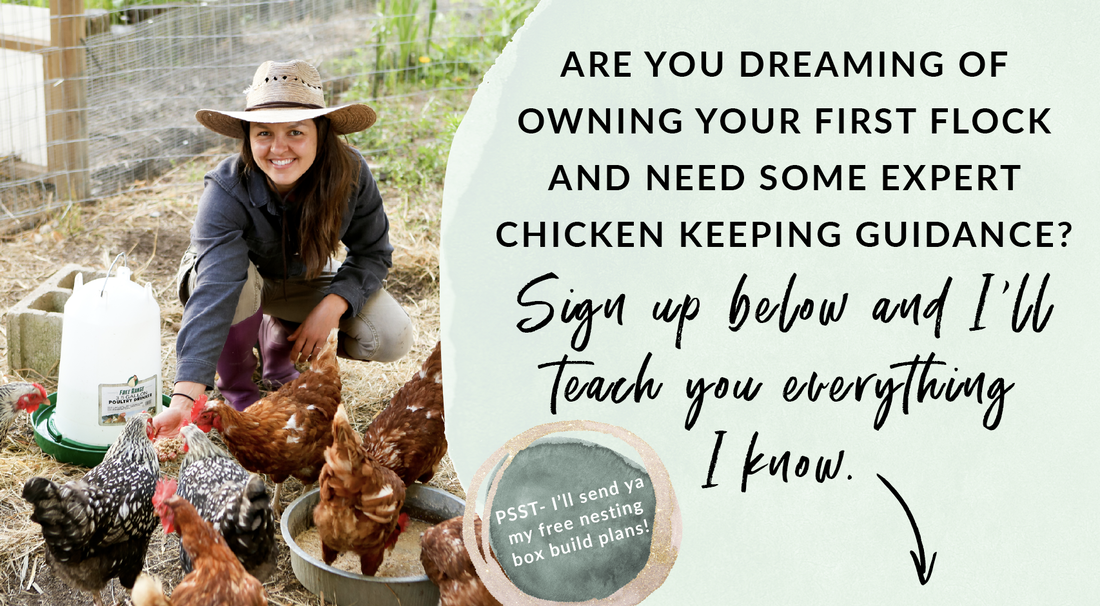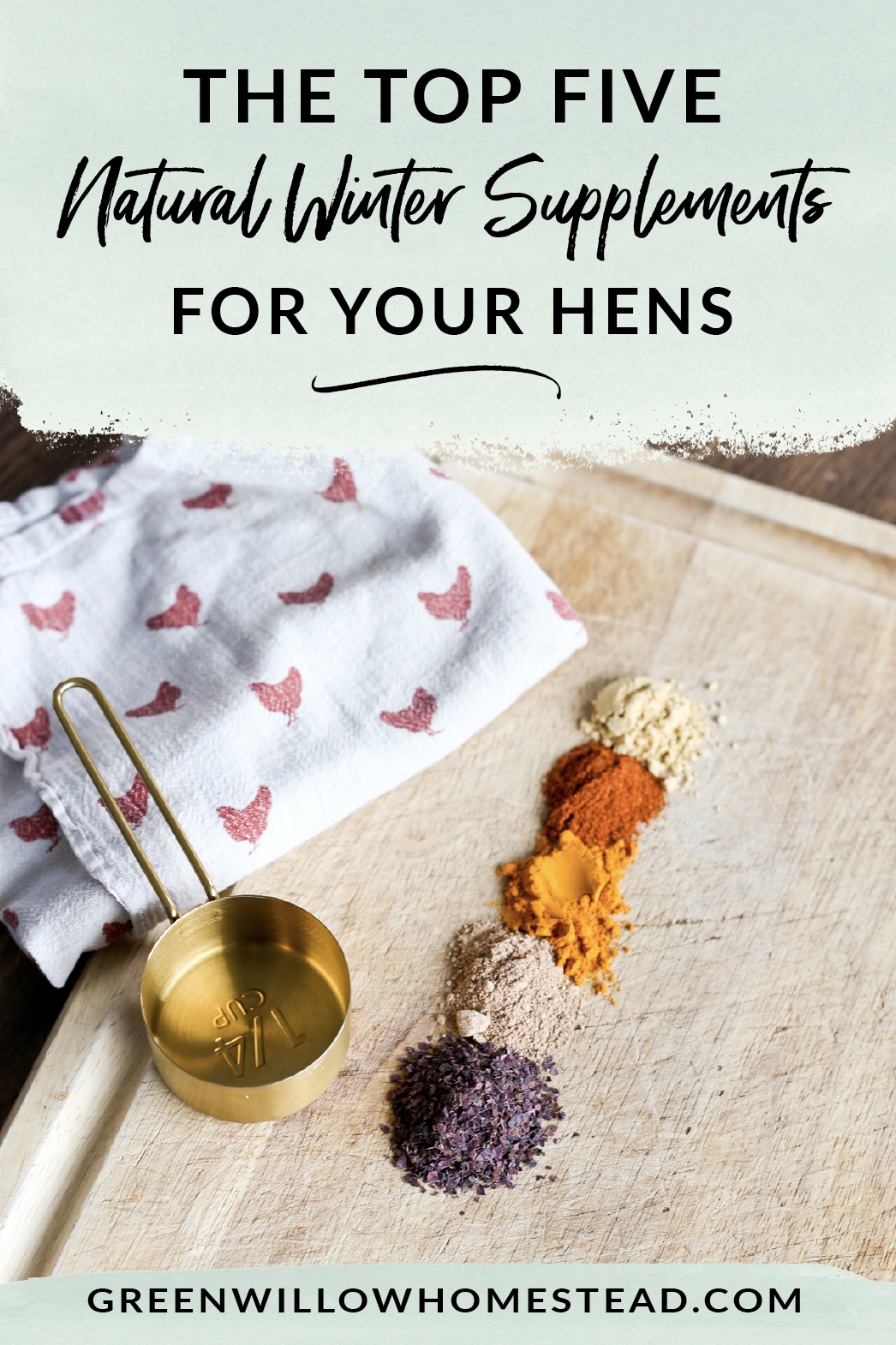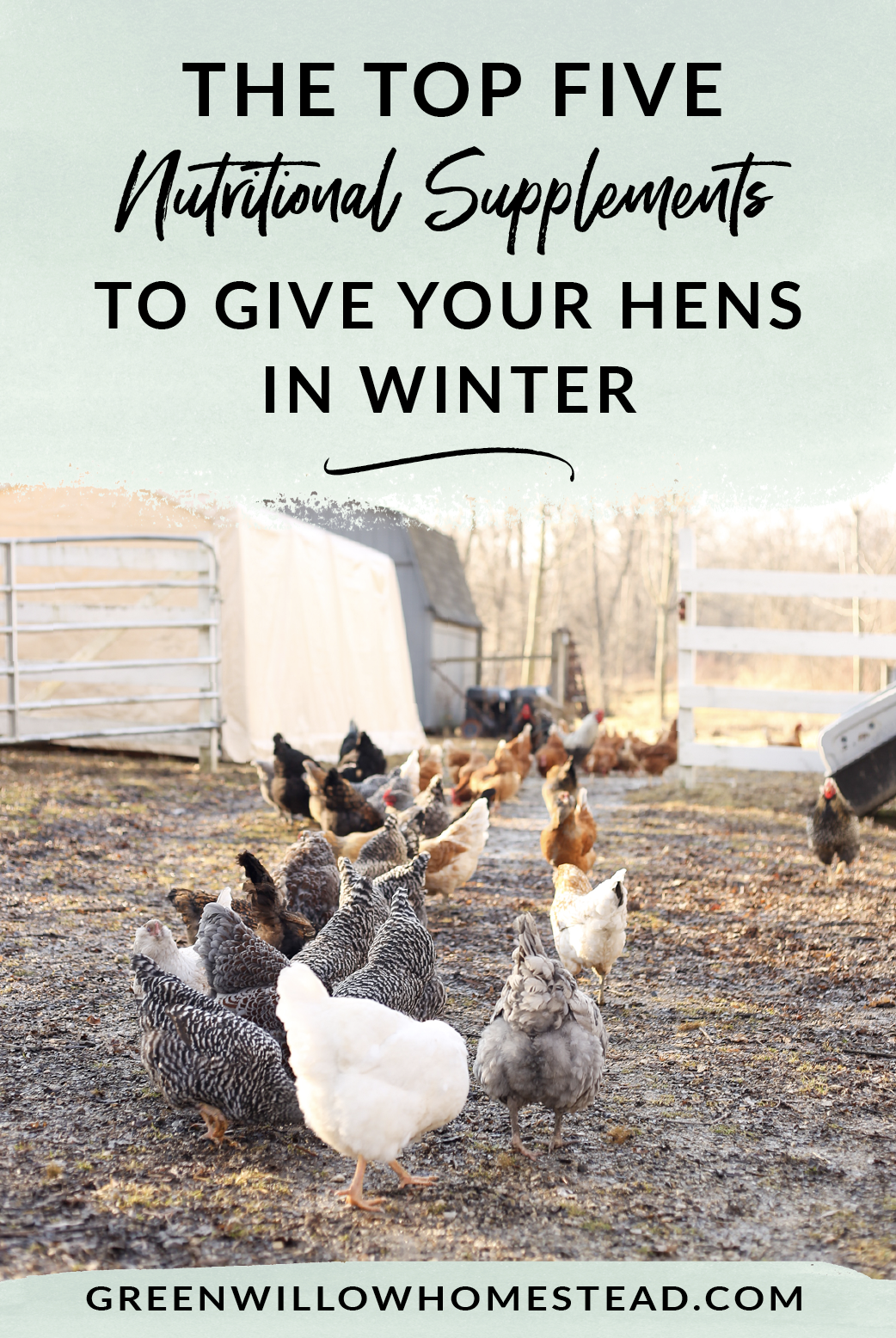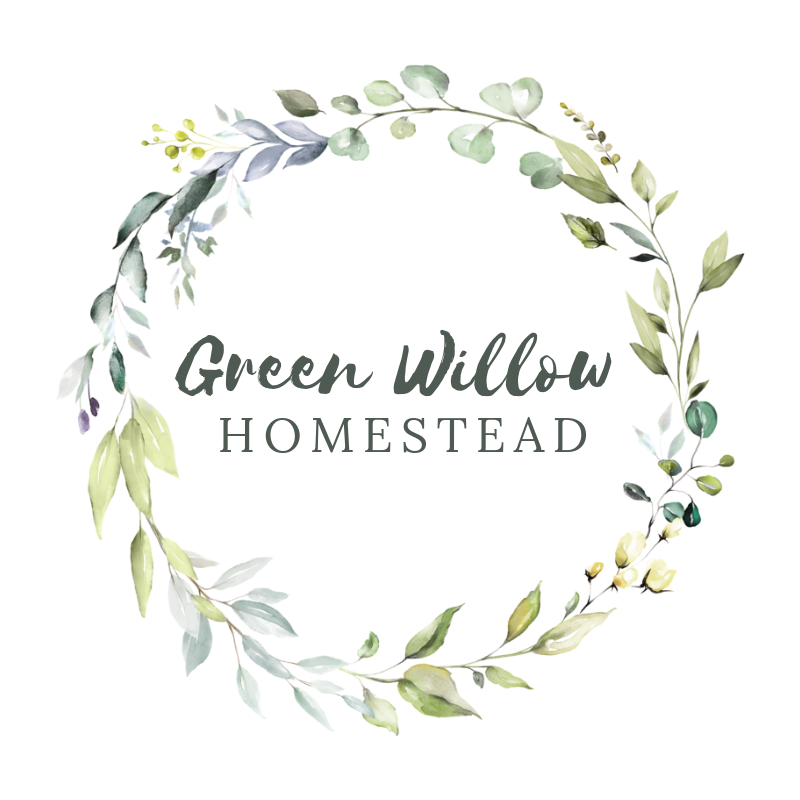The Top Five Natural Winter Supplements To Give To Your Chickens To Boost Immunity And Health10/10/2022
If you live in an area that gets blasted with snow and cold temperatures during the winter months, then your chickens are definitely going to need the extra nutritional boost only supplements can give.
Every winter on our farm in Wisconsin, I give a handful of high quality, natural supplements to my hens. In this post, I am going to share with you why you should consider supplementation during the winter months for your chickens, which supplements I recommend, and the benefits they provide for your flock.
Please note: Some of the links below are affiliate links, meaning at no additional cost to you, I will earn a commission if you end up clicking and purchasing an item. I worked hard to find my trusted favorites and I want to share them with you so you don't have to deal with all the crappy junk I had to go through. Nuff said.
Why give your chickens nutritional supplements in the winter?
First, the dramatic drop in temperature can be stressful for your flock. Hens expend more energy during the winter months keeping themselves warm, so there are a few supplements that I recommend to increase circulation (more on those in a bit).
Second, without access to pasture, dirt, worms, and bugs, your flock’s diet drastically changes and their nutrition definitely takes a hit. The most obvious sign to me is the yellowing of yolks after seeing deep orange yolks all summer. Third, with hens being held in much closer (and often stationary) quarters during the winter, the chance for infections and disease to spread are higher. We practice the deep litter method on our farm during the winter and use a DIY Coop Refresher (recipe here!) to keep ammonia odor at a minimum. From experience, we know the drastic change in environment from open pasture to the barn causes stress in our birds so we like to do everything in our power to keep them healthy. Lastly, giving supplements (AKA treats!) is a way to bond with your birds. I love supplementation time, and so do my girls - just look how happy this bunch is!
Ready to bond with your hens and boost their health? Let's do this!
The Top Five Natural Nutritional Supplements For Chickens In The Winter:1. Organic Dried Kelp or Seaweed
The benefits of supplementing your hen’s diet with organic dried kelp (seaweed) are numerous. A 2015 study out of Nova Scotia showed that seaweed helped boost beneficial bacteria in poultry’s digestive tract. Since seaweed is a great prebiotic, the EU considers it a potential replacement for growth hormones and antibiotics. While our farm is firmly against using growth hormones and antibiotics, we are all for chickens with healthy microbial activity in their guts!
Another study in 2014 showed that adding fermented seaweed to broilers’ diets helped boost their immunity and increase their growth rate. Anecdotally I can tell you when we started to supplement kelp into our hen’s feed once per week we had a spike in egg production. Many of the hens that were laying eggs every three days started to lay every two days. After a month of kelp supplementation, all our hens were laying once a day. While the colder temperatures in winter increase our hens’ feed intake, we still observe a decrease in body weight as they work to keep themselves warm. By adding kelp to their feed, I'm strengthening their immunity and the winter weight loss isn’t as substantial. I recommend and use Starwest Botanicals Organic Dried Kelp Powder. Once a week, add 1 cup of dried kelp powder per five-gallon bucket of feed. For our farm, a fully filled five-gallon bucket feeds 70 hens daily. This comes out to .1 oz per hen, or about ½ tsp per hen. 2. Pumpkins or Butternut Squash
I must say, there is quite a bit of drama surrounding whether or not pumpkin seeds are a proven chicken dewormer. Personally, I don’t like to use Wazine, or other chemical dewormers, because you have to toss the eggs during treatment. I can’t afford that kind of waste on my farm, so I opt for the natural route.
It has been long touted that pumpkin seeds act as an anthelmintic (used to destroy parasitic worms), but in researching the issue I’ve realized that the pumpkin seeds must be ground up so you can give a higher concentration to your hens. Grinding your pumpkin seeds in a coffee grinder or a Vitamix would suffice (it’s what I do!). Luckily, there was a 2019 study done out of the Philippines that has shown ground up pumpkin seeds have the potential to be used as an anthelmintic. I’ve copied the abstract here for your reading pleasure: Abstract: The present study was conducted to evaluate the in vivo efficacy of pumpkin seeds as an alternative natural anthelmintic for chickens. Ninety Philippine Jolo native chickens of mixed sexes, aged 4–5 months and weighing 1–2 kg, were randomly distributed into three treatment groups with 30 chickens per group. Control group A was fed basic mash feed, group B received feed mixed with ground pumpkin seeds (2 g/bird per day), and group C received mebendazole-medicated feed (30 mg/kg body weight). Fifteen randomly selected chickens from each group were euthanized and necropsied before treatment, and the remaining fifteen in each group were euthanized and necropsied at 3 days after the end of the treatment. Gastrointestinal worm and fecal egg counts were determined. Three genera of helminths were identified from necropsy: Ascaridia spp., Heterakis spp., and Raillietina spp. Results indicate that compared to mebendazole, pumpkin seed was moderately effective in reducing worm counts of Ascaridia spp. and Raillietina spp., marginally active in reducing worm counts of Heterakis spp., and moderately effective in reducing egg output of the worms. The results suggest that pumpkin seed has the potential to be used as an alternative anthelmintic for chickens.
If you are willing to grind up your pumpkin seeds, then, by all means, go for it! I recommend Anthony’s Organic Pumpkin Seeds. Grind in your Vitamix or coffee grinder until it becomes a soft fine mealy texture. Store it in a mason jar in the refrigerator so it doesn’t mold! Administer ½ tsp ground pumpkin seed per hen, or again it would be 1 cup mixed into a five-gallon bucket of feed.
If you want to skip the DIY, I highly recommend GERB'S Ground Pumpkin Seed Meal (non-GMO and Kosher). Administer ½ tsp ground pumpkin seed per hen, or again it would be 1 cup mixed into a five-gallon bucket of feed. I still like to supplement whole pumpkin and butternut squash for the beta-carotene boost it gives my girls. I’ll cut the gourds in half and set them in the pen for the girls to peck at - thus it doubles as a boredom buster too! 3. Turmeric
Supplementing your chickens’ diet with turmeric has a whole host of benefits. Thanks to the curcuminoids and turmerones present in turmeric, it has both antibiotic and antimicrobial properties, helping maintain the overall health of your flock.
A 2018 study done by the Journal of Animal Science showed the addition of turmeric improved growth performance in poultry, due to the better antioxidant activity and antimicrobial effects. Turmeric also acts as an anti-inflammatory, which overall helps reduce inflammatory issues that can lead to disease and death in poultry. It’s crucial to note that to date, there is no study that showed turmeric had an adverse effect on poultry! To supplement with turmeric, I recommend NOVA Turmeric Powder. Administer ½ tsp turmeric powder per hen, or again it would be 1 cup mixed into a five-gallon bucket of feed. 4. Cayenne Pepper
I know a spicy meal can help boost my circulation and get my energy levels up, and the same goes for your hens! Supplementing your chicken’s with cayenne pepper provides a bunch of wonderful benefits to their overall health.
A 2015 study from European Poultry Science showed that chickens given cayenne pepper had the highest growth rate and optimum blood lipid profile. A 2017 study from the Journal of Biology Agriculture and Healthcare showed that cayenne pepper significantly enhanced the immunity and growth rate of broilers. Last and certainly not least, for my orange yolk egg lovers ... a 2012 study from the Journal of Animal Science showed that cayenne pepper helped increase the pigmentation and overall size of egg yolks. I personally use and highly recommend Starwest Botanicals Organic Cayenne Pepper. Administer ½ tsp cayenne pepper powder per hen, or again it would be 1 cup mixed into a five-gallon bucket of feed (are you noticing a trend here?!) ;) 5. Garlic
I personally will take raw garlic cloves dipped in honey when I feel like I’m coming down with something. Garlic has been proven to be a natural antibiotic, it lowers blood pressure, and it’s a huge source of antioxidants. All these benefits are big wins for your flock in the wintertime!
A 2016 study from Veterinary World showed that garlic significantly increased the growth rate of broilers and proved to be a natural replacement for antibiotic growth promoters. I recommend Starwest Organic Garlic Powder. Administer ½ tsp garlic powder per hen, or again it would be 1 cup mixed into a five-gallon bucket of feed. How to easily administer these supplements to your flock?
I like to have a “Supplement Saturday” for my flock, where I’ll add 1 cup each of kelp, ground pumpkin seeds, turmeric, cayenne pepper, and garlic powder (totaling five cups of supplements mixed into a five-gallon bucket of feed).
Then I’ll wet the mixture down with water to make a mash for my chickens. With the supplements being all being in powder form, I hate to lose them to the air when the chickens scratch and peck their way through their feed. My flock receives supplementation from Thanksgiving to Easter, totaling about 20 weeks (20 doses). I like to stock up on all the brands I mentioned in early November (or around Black Friday to save!) and then store them out in the barn with a measuring cup so I don’t forget about them. You can even premix the powders if you and store them in a five-gallon plastic bucket. Here are all five of my go-to chicken supplementations:
I hope you loved this post on natural winter supplementation for chickens. Do you use any other herbs or natural supplements throughout the winter? Fill me in below! You'd also like my posts on DIY Recipe For Poultry Protector To Keep Mite And Lice Away or DIY Recipe For Coop Refresher To Eliminate Ammonia OdorThank you!You have successfully joined our subscriber list.
12 Comments
Christa (@seejaycamp)
2/18/2020 10:16:01 am
Kelsey, thank you for the helpful blog post! I love how you combine scientific evidence and anecdotal experience. This is super valuable information and I appreciate the research you've combined with your invaluable experience as a FarmHer!
Reply
Kelsey
2/18/2020 12:55:13 pm
Yay! I’m so glad you found this post valuable. I hope it helps your flock as much as it’s helped mine.
Reply
Al Ruiz
12/18/2020 03:17:56 am
Great information, thanks
Reply
Robin
12/24/2020 03:34:07 pm
Completely off topic...where did you find that cute towel with the red chickens? I've looked all over and can't find anything like it.
Reply
Ramona
11/11/2021 02:57:44 pm
Why from Thanksgiving to Easter?
Reply
11/24/2021 04:25:43 am
very interesting , good job and thanks for sharing such a good blog.
Reply
4/21/2022 12:41:44 am
In winter, it is essential to take care of the immunity system not only for chickens but for other animals too also humans. What do you do to boost your immune system?
Reply
Chelsea Kissiah
1/4/2023 06:46:48 pm
Hi! Can you tell me how you wet the food down? Do you just lightly spray it?
Reply
Kelsey
1/6/2023 01:28:55 pm
Hi Chelsea! I just wet it down with water from my utility sink, but you can use whatever water source you have on hand. I do get it moist enough to clump just a bit. Hope that helps!
Reply
Leave a Reply. |
Meet Kelsey,Thanks for stopping by Green Willow Homestead! From chicken rearing to composting, we've got our hands full and we love sharing what we've learned along the way. Follow along as we turn the 80 acres we call home into a farm that serves its community and a homestead that nourishes us throughout the seasons. Grab the EbookListen in!FREE Guide!Tune in to our YouTube ChannelInspirationsCategories
All
Favorite Books of 20241. Erosion
2. Braiding Sweetgrass 3. As Long As Grass Grows 4. The Small Scale Poultry Flock 5. The Zero Waste Solution Archives
April 2024
|
FOLLOW KELSEY ON INSTAGRAM!
As an Amazon Associate I earn from qualifying purchases. |

